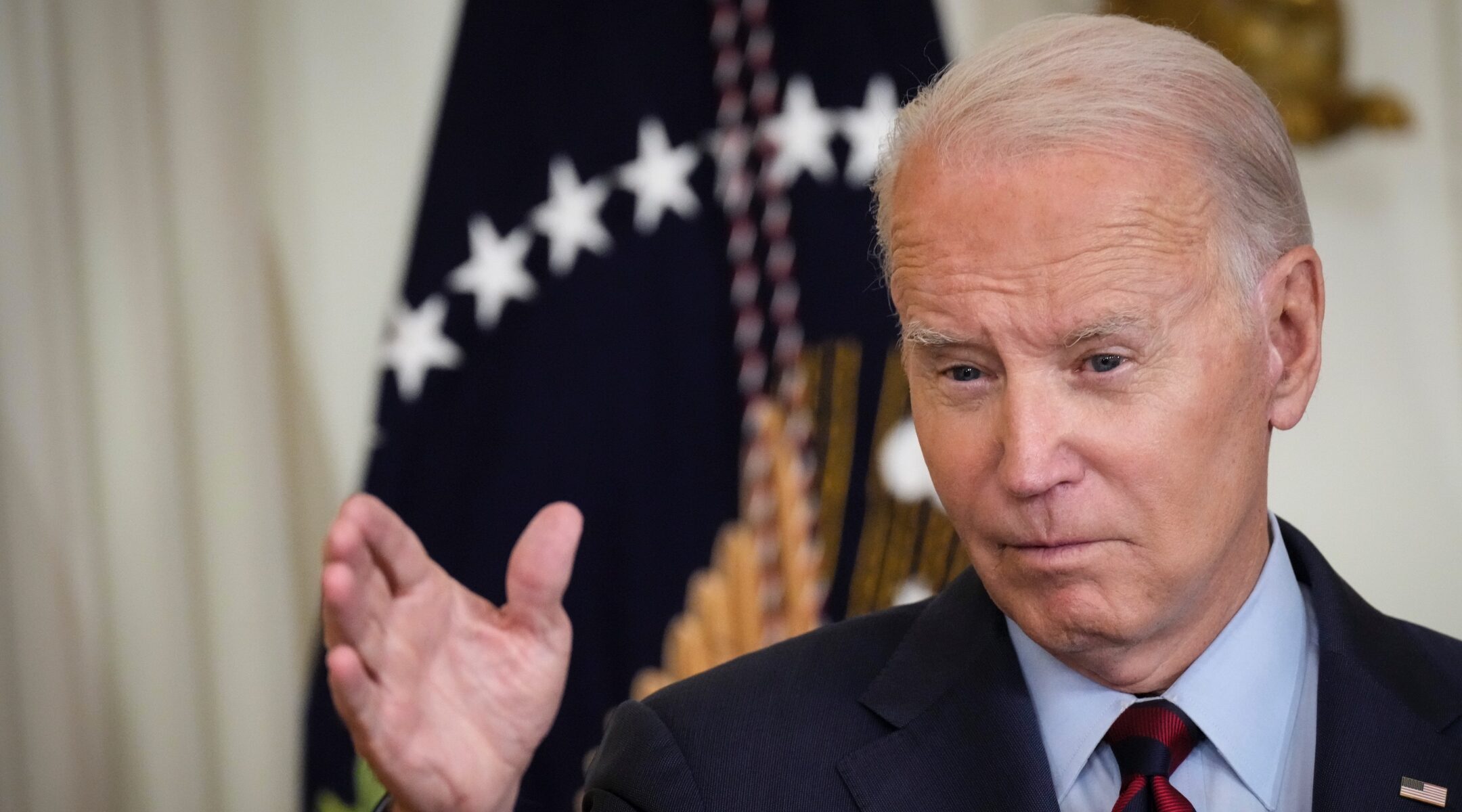WASHINGTON (JTA) — President Joe Biden blamed increasing tension in the West Bank on the “lost credibility” of the Palestinian Authority as well as on “extreme” ministers in Israel’s government.
In a televised interview on foreign policy with CNN host Fareed Zakaria on Sunday, Biden also again declined to say when he would invite Israeli Prime Minister Benjamin Netanyahu to the White House. Biden has pushed off scheduling that meeting due to friction between the two men regarding Netanyahu’s far-right coalition partners and his government’s plans to weaken the judiciary.
“Bibi, I think, is trying to work through how he can work through his existing problems in terms of his coalition,” Biden said, using Netanyahu’s nickname, after Zakaria asked him what it would take to invite Netanyahu to the White House. “This is one of the most extreme members of cabinets that I have— that I have seen. And I go all the way back to Golda Meir.” (Biden famously met with Meir, then Israel’s prime minister, just prior to the 1973 Yom Kippur War, when he was a freshman senator.)
Netanyahu’s cabinet includes Bezalel Smotrich, the finance minister who holds a measure of authority in the West Bank, and Itamar Ben-Gvir, the national security minister. Both stand at the head of far-right parties, and Ben-Gvir has been convicted of terrorism-related offenses. Both evinced some sympathy for settlers who have carried out retaliatory riots in Palestinian villages in recent months, and have called for accelerated Jewish settlement.
In the interview, Biden also discussed the judicial overhaul, which he has criticized. He said it was another factor in considering when Netanyahu would visit. “Hopefully, Bibi will continue to move toward moderation in changing the court,” Biden said. (After months of negotiation between Israeli political factions, Netanyahu’s government appears poised to advance one segment of the reform this week.)
Biden said his government is in constant contact with Israel and noted that Israeli President Isaac Herzog — who has notably criticized Netanyahu’s court initiatives — is visiting later this month.
Biden had criticism for Palestinian leaders as well: He lamented the collapse of authority in parts of the West Bank ostensibly controlled by the Palestinian Authority.
“I think that the fact that the Palestinian Authority has lost its credibility, not necessarily because of what Israel’s done, just because it’s just lost its credibility, number one, and, number two, created a vacuum for extremism in the — among the Palestinians … there are some very extreme elements,” he said.
Biden appeared to echo Israel’s defense of its military raids in Palestinian-controlled areas of the West Bank. Last week, Israeli forces mounted a deadly two-day raid on the city of Jenin in which 12 Palestinians and one Israeli were killed. Israel has said that the Palestinian Authority has all but ceded some areas to armed militants, who are carrying out deadly attacks against Israeli civilians. Since the beginning of the year, more than 150 West Bank Palestinians and more than two dozen Israelis have been killed in the violence.
“So it’s not all [on] Israel now on the West Bank, all Israel’s problem, but they are a part of the problem, and particularly those individuals in the cabinet who say, ‘They have no right to— we— we can settle anywhere we want. They have no right to be here’, et cetera,” Biden said.
“We’re talking with them regularly,” he said, referring to the Netanyahu government, “trying to tamp down what’s going on.”
Biden sounded unusually pessimistic, essentially conceding that the Israeli government does not have the desire, and the Palestinian Authority does not have the means, to return to peace talks, a goal of his Israeli-Palestinian policy. The last serious talks between the sides collapsed in 2014. But Biden said he was still committed to the two-state outcome. “I’m one of those who believes that Israel’s ultimate security rests in a two-state solution.,” he said.
He appeared to be more optimistic about a prize that Netanyahu has sought: Saudi recognition of Israel. Biden suggested that a Saudi condition of establishing relations with Israel was the United States agreeing to help Saudi Arabia acquire nuclear know-how. The country seeks nuclear protection because it, like Israel, fears that Iran may obtain nuclear weapons — though it restored relations with Iran this year.
“I don’t think they have much of a problem with Israel, quite frankly,” Biden said of Saudi Arabia. “And whether or not we would provide a means by which they could have civilian nuclear power and/or be a guarantor of their security, that’s — I think that’s a little way off.”
The interview covered a range of foreign policy topics, including U.S. support for Ukraine and relations with China.
JTA has documented Jewish history in real-time for over a century. Keep our journalism strong by joining us in supporting independent, award-winning reporting.






